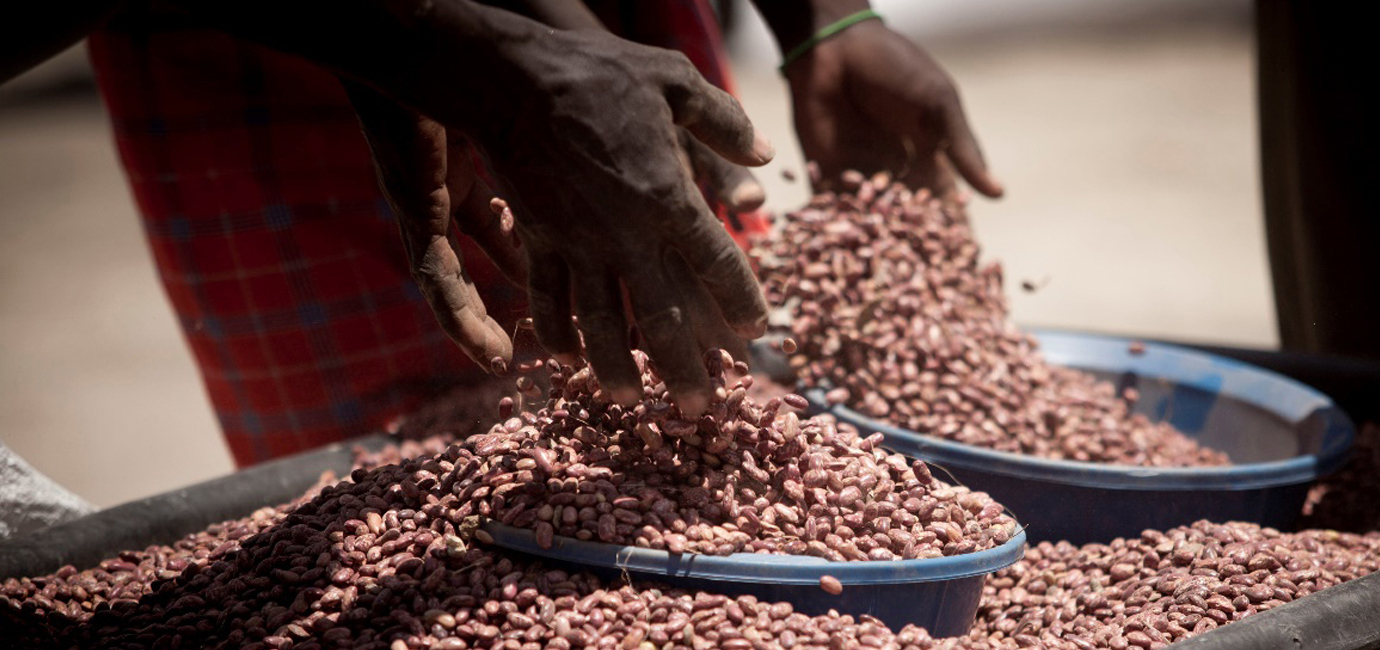WFP is one of the largest global humanitarian organizations, providing relief and life-saving assistance to some 87 million people worldwide through emergency food assistance initiatives and working with communities to improve nutrition and increase resilience. One of the key actors contributing to the success of WFP interventions is the private sector, given its active role in the local economy and its ability to intervene in emergency, for the allocation of food and other assets essential for the survival of populations. Through emergency response programs, WFP annually invests millions of dollars.
The private sector is one of the biggest recipients of this investment, as it is up to it to supply products up to the level of the populations in need.
WFP investments in contract operations (2017-2018)::
$19.1 million: acquisition of food from medium and large-sized enterprises
$3.8 million: procurement from retailers (mostly medium-sized enterprises)
$12 million: transportation and storage of assistance supplies, contracted to medium and large-sized enterprises
$72 thousand: Food procurement from smallholder farmers (WFP also encouraged grouping of smallholder rural farmers into associations to facilitate the marketing of agricultural products)
However, to what extent is the private sector positioned or able to respond to emergencies? Is this sector aware of the impact and influence it has on the market in responding to emergencies?
WFP points out that in analysing commercial transactions, it is evident that the cost of transactions in local purchases is almost always higher than if WFP had imported these products into its local distribution. However, WFP has made a commitment to the Government of Mozambique to buy locally to promote domestic enterprises and thus contribute to strengthening the country's food systems. In addition to the high costs, there are other risks incurred in these transactions, as WFP makes advance payments to SMEs, as it recognizes that these enterprises do not have cash flow or start-up capital to invest in the quantities / volumes needed in relief operations.
Another challenge faced by WFP in working with the local private sector is related to the quality and safety of available food and services, which are mostly lower as compared to internationally established standards, often compromising the pipeline. As a result, WFP is also investing heavily in building and strengthening the capacity of local companies in the area of food security and having recently signed an agreement with the Mozambican Chamber of Commerce in this area.
WFP's position shows that there is a gap to be filled by the national private sector in emergencies and post emergencies period when it comes to technical and production capacity, quality and safety of food and services, accessibility and associativism.
In Mozambique, WFP is engaged in a number of initiatives linked to the private sector, including:
- Co-facilitator of SBNMOZ, bringing its experience in engaging with the private sector and a wide range of contractual operations with entities in the food systems.
- Promoting partnerships and opportunities for collaboration with the local private sector in social programs such as the School Feeding Program, Food Fortification Program and the Food Assistance Program in their different modalities and contexts.
- To respond to a demand from MISAU (Ministry of Health) and, as a way to promote agribusiness in Mozambique, WFP is identifying partnerships with the local food industry to explore the production of super cereal – a soy-based food supplement that is currently imported for the treatment of moderate acute malnutrition
These types of strategic partnerships with the private sector make it possible, on a large scale, to increase the impact of the programs currently implemented by the WFP in support of the Government, as well as to build more capacity within the national private sector.




